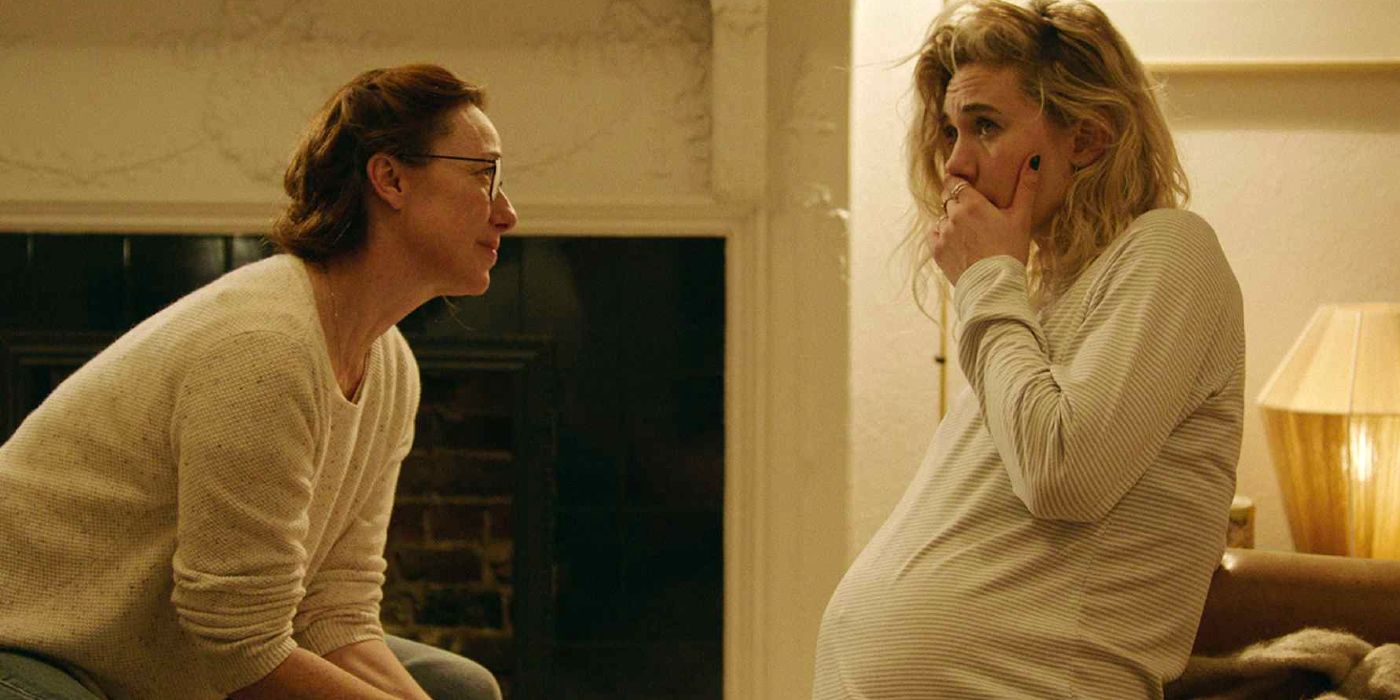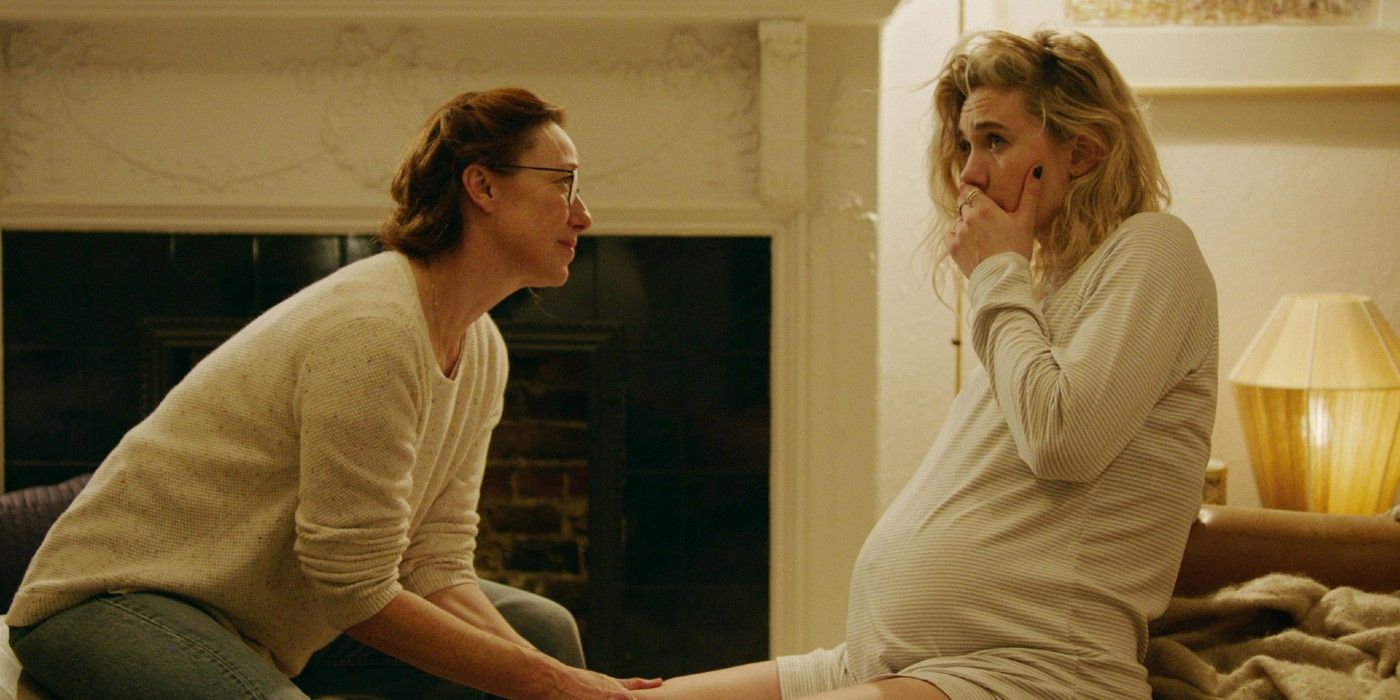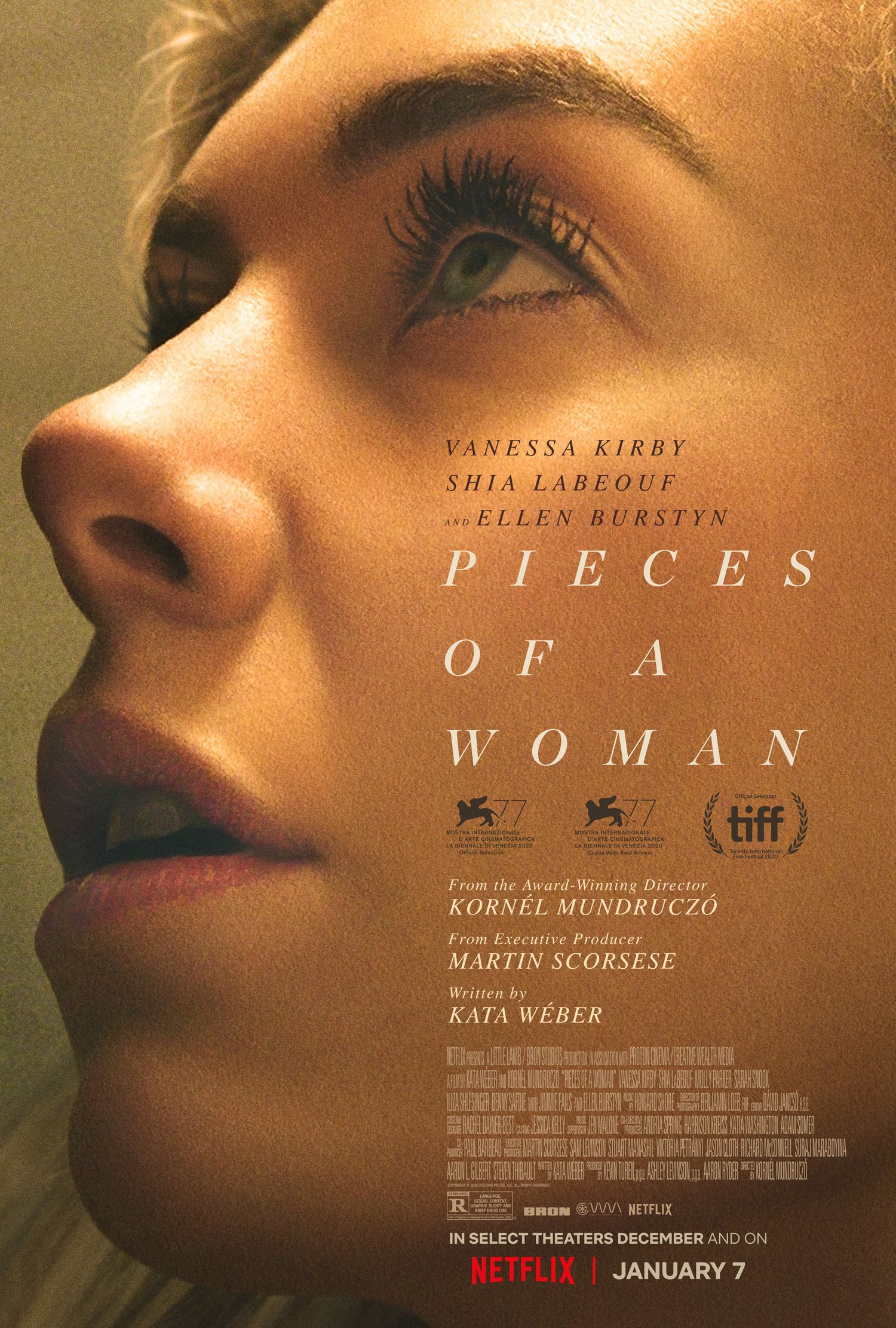Pieces of a Woman may be the perfect follow-up for fans of Vanessa Kirby's impeccable work on The Crown, as the actress gives it her all in the new Netflix tragedy. The movie, available from today, deals with a Kirby’s Martha and her husband Sean (Shia LeBeouf) grieving after the loss of their child.
Writer Kata Wéber and director Kornél Mundruczó spoke to Screen Rant about the intensely personal subject matter and the ways they worked to bring the pain to life from page to screen.
I know this is a very personal experience for both of you, but it's also a universal experience that happens often. How cathartic was it, bringing this film to life?
Kata Wéber: Very much so. I got an invitation from a theater to write a play, and I certainly had some notes in my notebook around this topic, but I was not sure if I want to deal with this. So, when Kornél read the notes, he encouraged me to go there. And I was so much afraid. Certainly in that moment, we realized we never spoke about our experience, which is different, but -
Kornél Mundruczó: About the miscarriage.
Kata Wéber: About a miscarriage. So, that was the starting point. If we ever want to deal with this, if we could ever talk about it, I think writing it down was like breaking the silence. And understanding that this is a taboo, which we have to talk about.
Vanessa Kirby and Shia LaBeouf are both dynamic and unpredictable performers. What was the biggest surprise about their performance?
Kornél Mundruczó: To be honest, with Vanessa, it was amazing how rich [she was] with silence. How you can express isolation, how you can express an infinite connection to someone who is not there. Can you imagine how difficult that is, from an acting standpoint, when you don't have a real situation? You have to smoke, you have to sit, you have to sit in the bath.
She was rich, and beautiful and emotional and rough, so you feel her. You feel her 100%, and that's amazing. There's another level of acting, which the best ones can create, like Catherine Deneuve
or Claudia Cardinale. I mean, those icons are creating that, and she gave that aspect to that movie.
And from the relation standpoint, it was really important for us to create a couple who are very different, and very far from each other in background. That's creating an infinite love in between them.
What did Shia and Vanessa bring to the roles of Sean and Martha that may have not been on the page?
Kata Wéber: It's so many different things. But I think there is a role you write on the paper, but then it has to be alive. How does it become alive? That's them. I mean, that's the talent; that's the presence of someone onscreen. Both of them are so strong.
I think they find tiny little things. Like, in every scene, Shia telling his jokes to make the scene alive, or Vanessa finding the apple scene on the bus. It was written that she eats an apple, but finding the scene and that glorious, fantastic moment full of grace is when they really live with the role you wrote them.
Kornél, that opening scene is very intense, and it almost throws the viewer into a state of helplessness, like the character of Sean was feeling. Can you talk to me about the challenges of filming that opening scene?
Kornél Mundruczó: You describe it absolutely well. This is a challenge of a birth, especially from a father's standpoint. I remember, as a father of three, that you are fully emotional, but at the same time, a little bit of an observer in a situation which is completely uncontrollable. That's what I would like to create.
Also, I want to be as close to Vanessa as possible; really watching through her eyes, the whole scene, and really establish her infinite love to the baby. And also just the whole thing is turning good. I decided to make it as real as possible, if nothing else as close to real life as possible. Is this difficult to watch? Yes. Is this absolutely miraculous and graceful to watch? Yes. There are things like this, births and deaths and a few human values we have to share.
The mother and daughter come into conflict in this film, but it's because they both have so much pain at their core. What brings the two together, and what also keeps them apart?
Kata Wéber: I think what brings them together is understanding; understanding the different perspectives, and to accept the different ways and the different paths they would choose. What takes them apart, though, is that I think I wanted to talk about the fact that in certain families, people pass the way they deal with traumas from generation to generation. And they might not help the other generation.
It's a really hard topic when you deal with Holocaust survivors, because their perspective sometimes comes from a place where you just cannot go, and you really respect them. But although the mother's character has the best intentions, she cannot help her daughter in this particular situation. And I so much wanted to express that.



